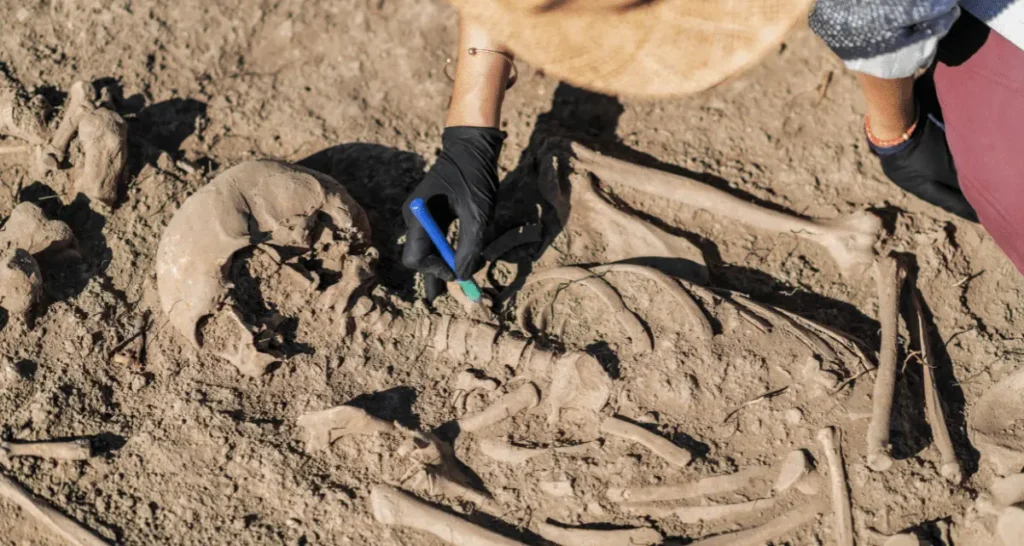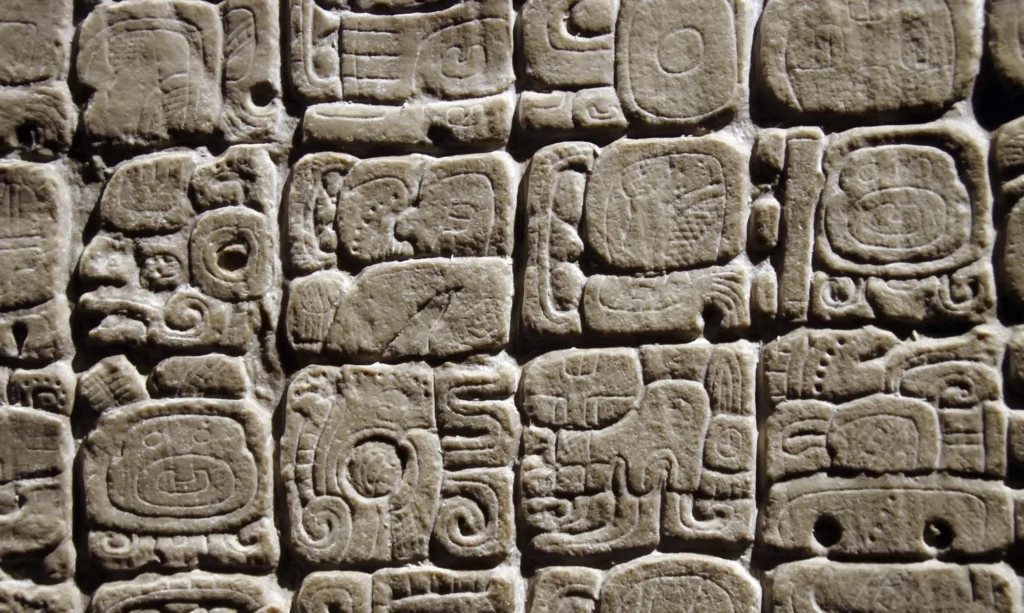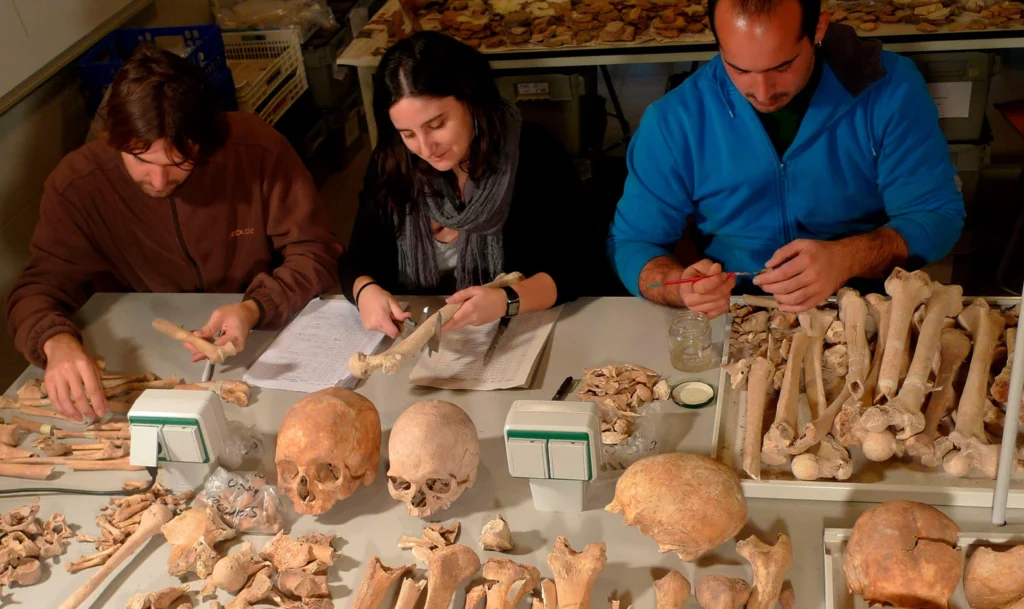Archaeology and Anthropology BA
Oxford’s Archaeology and Anthropology BA programme offers a unique and exciting opportunity to explore human history and culture from ancient times to the present, combining archaeology and social anthropology for a broad, interdisciplinary perspective. Students engage with topics like human origins, ancient civilizations, and cultural practices through a mix of arts, social sciences, and physical sciences, developing critical thinking, research, and communication skills valued across many careers—from academia to heritage management and museum work. To succeed in the course and stand out during admissions, Oxford University curious students who go beyond their classrooms by exploring related subjects such as history and geography, visiting museums, reading widely, and engaging with real-world experiences and current research. Demonstrating intellectual curiosity, initiative, and a genuine eagerness to understand human societies will help you make a strong impression and thrive in this fascinating programme.

About the Course
This course focuses on the study of humans, tracing our journey from early beginnings to the modern world. It combines archaeology—the study of ancient objects and places—with anthropology, which looks at people and cultures.
These subjects have long histories: Archaeology and Anthropology BA programme began in the 1700s, while anthropology goes back even further. Today, both use advanced methods drawn from the arts, social sciences, and natural sciences.
At Oxford, you’ll study Archaeology and Anthropology BA programme together over three years, giving you a broad understanding of how humans have lived and changed over time.
You will:
Learn about human evolution
Understand major historical changes like farming, towns, trade, and world religions
Explore how families, politics, and economies develop in different societies
Study how objects—such as tools, art, and buildings—reflect people’s beliefs and cultures
Five Oxford Institutions Specialising in Subject
Oxford has five key institutions that support teaching and learning in this course:
The School of Archaeology
The School of Anthropology and Museum Ethnography
The Ashmolean Museum
The Pitt Rivers Museum
The Oxford University Museum of Natural History
Each of these places plays an important role in providing teaching, resources, and hands-on experiences for students studying this degree.
Fieldwork and International Opportunities
As part of the course, you’ll complete at least four weeks of fieldwork, usually during the summer after your first year. Your tutors will review and approve your fieldwork plan.
This work can happen in the field, a lab, or a museum, and may involve projects in both archaeology and anthropology. Recent students have travelled to places like Azerbaijan, Denmark, and South Africa.
The University—and sometimes your college—can help cover the costs of fieldwork.
You can also choose to do additional fieldwork for your final-year dissertation or gain work experience at one of the University’s museums.
Course Summary
UCAS Code: LV64
Entry Requirements: AAA grades
Course Length: 3 years (Bachelor of Arts – BA)
Subject Requirements
Required Subjects: None
Recommended Subjects: None
Helpful Subjects: A mix of arts and science subjects can be useful.
Other Course Details
Admissions Test: Not needed
Written Work: Submit 3 pieces
Interview Rate: 57%
Success Rate: 17%
Total Students Accepted: 21
Course structure
YEAR-1
Courses
In the first year, students take four core subjects that provide a strong foundation in both Archaeology and Anthropology BA programme:
Introduction to World Archaeology
Introduction to Anthropological Theory
Perspectives on Human Evolution
The Nature of Archaeological and Anthropological Enquiry
Alongside these, you’ll also take part in:
Hands-on practical classes
A fieldwork placement, typically completed in the summer after your first year
Assessment
At the end of the first year, you’ll sit four written exams as part of the First University Examinations
Years 2 and 3
COURSES
- Four core courses are taken:
- Introduction to world archaeology
- Introduction to anthropological theory
- Perspectives on human evolution
- The nature of Archaeology and Anthropology BA programme enquiry
- Practical classes
- Fieldwork
Assessment
- First University examinations: four written papers
Years 2 and 3
Courses
- Five core courses are taken:
- Social analysis and interpretation
- Cultural representations, beliefs and practices
- Landscape and ecology
- Urbanism and society
- Fieldwork and methods
- Options (three from a broad range of anthropological and archaeological courses, one normally taken in Year 2, two taken in Year 3)
- Practical classes
- Dissertation
Assessment
Final university examinations:
- Year 2: You’ll be assessed through a 5,000-word essay based on your chosen option. The Fieldwork and Methods paper includes a 5,000-word fieldwork report (based on work completed at the end of Year 1) and two shorter reports (1,000 words each) linked to your practical classes.
- Year 3: Assessment includes six written exams covering core subjects and your selected options. You’ll also complete a 15,000-word dissertation, which carries double weight.

Admissions Requirements
- A-levels: AAA
- Advanced Highers: AA/AAB
- International Baccalaureate (IB): 38 (including core points) with 666 at HL
- Any other equivalent qualification: View information on other UK qualifications, and international qualifications
- Wherever possible, your grades are considered in the context in which they have been achieved.
Subject Requirements
A background of studying both arts and science subjects can be helpful to students in completing the course, although there are no specific subject requirements for admission. If a practical component forms part of any of your science A‐levels used to meet your offer, we expect you to pass it.
If English is not your first language, you may also need to meet our English language requirements.
Applying for a Course
All candidates must follow the application procedure as shown on our Applying to Oxford pages.
The following information gives specific details for students applying for this course.
Admissions test
You won’t need to take a written test when applying for this course. Oxford does not require any pre-interview assessments for Archaeology and Anthropology, so your application will be reviewed based on your personal statement, academic record, and interview performance.
Written work
As part of your application, all candidates must submit the following:
Two recently marked essays
These should be essays written for a school or college course within a two-week timeframe or less. Ideally, they should be from two different subjects.Essays written in a language other than English must include an English translation.
All essays should be typed. If they were originally handwritten and marked by your teacher, you’ll need to submit both the typed version and the original handwritten one.
If you don’t have essays of this kind—for example, if you’re a mature applicant or studying only science/maths subjects—get in touch with your chosen college for guidance.
A short essay (maximum 800 words)
Respond to the following question:
“How do you understand the connections between Archaeology and Anthropology BA programme? Illustrate your response by reference to what we can learn about people in the past and/or present from their material culture.”
“Submission Deadline: 10 November 2025″

Careers
A degree in Archaeology and Anthropology BA programme from Oxford opens the door to a wide range of careers. This is partly because the course provides students with a deep understanding of how human societies function, change, and interact across time and space.
The strong career prospects also reflect the academic rigour of an Oxford education. The combination of independent study, critical thinking, and small-group tutorials enables students to develop valuable skills that employers across various fields seek.
Graduates from this course have gone on to work in various fields, including heritage management, international development, education, law, media, and the Civil Service, among others.
FEES AND FUNDING
Note: These annual fees apply to full-time students starting this undergraduate course in 2025. Updated fee information for 2026 entry will be available in September.
At Oxford, financial barriers shouldn’t stand in the way of academic potential. If you have the ability to study here, we want to support you. That’s why Oxford offers one of the most generous financial support packages for UK students—and in many cases, your college may also provide additional funding.
Fees
|
status |
Annual Course fees |
|
Home |
£9,535 |
|
Overseas |
£41,130 |
Living costs
Living in Oxford may cost less than you expect. Thanks to the University’s world-class facilities and the support provided by colleges, many students find it easier to manage their expenses.
For students starting in 2025, estimated living costs range from £1,425 to £2,035 per month, depending on your lifestyle and spending habits. Since Oxford’s academic year is made up of three eight-week terms, most students are in Oxford for just over six months of the year. However, it’s a good idea to plan your budget across nine months to cover essential costs during the holidays as well.
For more detailed information, visit Oxford’s official
Financial support
HOME
If you’re a Home student (UK, Irish nationals, or others with UK citizens’ rights), you won’t need to pay your course fees upfront. The UK government offers a tuition fee loan that covers your full course fees for your first undergraduate degree.
In 2025, Oxford is providing one of the most generous bursary packages in the UK. If your household income is around £50,000 or less, you may be eligible for financial support. Students from households earning £32,500 or less may qualify for even more funding.
The UK government also offers living cost support (such as maintenance loans or grants) to Home students who meet the residency criteria, including those with settled or pre-settled status under the EU Settlement Scheme, and Irish citizens under the Common Travel Area agreement.
💡 Note: The type and amount of support available will depend on your residency status, so be sure to check what you’re eligible for before applying.
Overseas (International Students):
For more funding opportunities, be sure to check the “Other Scholarships” section on Oxford’s Bursaries and Scholarships page.
Oxford bursaries & scholarships
This page has everything you need to know about Oxford’s non-repayable bursaries and scholarships for students starting in October 2025, plus details about external scholarships you might be eligible for.
Scholarships for UK students
If you’re a UK-Resident studying for your first undergraduate degree and your household income is £32,500 or less, you may be eligible for the UK Scholarship at Oxford. This generous, non-repayable bursary offers up to £6,150 per year to help cover your study and living costs. Beyond financial support, the scholarship also provides access to funded internships, allowing you to gain valuable career experience. You’ll also have opportunities to get involved in volunteering and take part in social and community events, helping you make connections and feel part of the Oxford community. For full details, visit Oxford’s official Uk Scholarship page.
Oxford Bursaries for Home Students
If you’re a UK student or a Republic of Ireland (ROI) national living in the UK or Ireland, and you’re from a lower-income household studying for your first undergraduate degree (including Graduate Entry Medicine), you could receive the Oxford Bursary—a yearly, non-repayable financial support to help with your study and living costs at Oxford. Even if you’re not eligible for, or don’t take up, a Crankstart Scholarship, you’ll still be considered for this bursary.
Students studying full-time on the Undergraduate Certificate or Diploma in Theological Studies can also apply. If you’re from the EU, EEA, or Switzerland and have settled or pre-settled status under the EU Settlement Scheme, you may qualify for Home fee status and UK student finance—making you potentially eligible for the Oxford Bursary too, provided you meet the residency requirements.
The bursary amount will depend on your annual household income:
Annual household income | Annual Bursary |
£25,000 or less | £4,240 |
£25,001 – £32,500 |
£3,720 |
£32,501 – £37,500 | £3,180 |
£37,501 – £42,875 | £2,120 |
£42,876 – £50,000 | £1,060 |
You don’t need to fill out a separate application for the Oxford Bursary or Crankstart Scholarship—your eligibility is automatically assessed based on your household income by your regional student funding agency. Just make sure that both you and your parents/guardians (or whoever you live with) agree to be financially assessed when you apply for UK government student funding.
If you’re starting your course in 2025 and qualify, you’ll be notified of your bursary or scholarship entitlement between mid to late September 2025. To be considered, your financial assessment must be completed by 30 May 2026.
(Note: If you’re a student starting or continuing your course in 2024/25, visit Oxford’s Support webpage for the relevant bursary details for that academic year.)
More Oxford scholarships
There are a small number of other centrally administered scholarships available for undergraduates and these are summarized below. For further details of each scheme, click on the name of the scholarship.
Applications for these scholarships are now closed.
| Scholarship | Eligibility | Award | Application Deadline |
|---|---|---|---|
| Bright Oceans | Students must be ordinarily resident in mainland China (excluding Hong Kong & Macau), studying an undergraduate course in the Mathematical, Physical and Life Sciences Division. | Course fees and an annual grant towards living costs | 12 noon (UK time) on 12 February 2025 |
| Hill Foundation Scholarship | Students must be nationals of and ordinarily resident in the Russian Federation wishing to study for a second undergraduate degree. | Course fees and an annual grant towards living costs. | 12 noon (UK time) on 12 February 2025 |
| Oxford Centre for Islamic Studies (OCIS) Undergraduate Scholarship | Applicants must be ordinarily resident in the UK and from a Muslim community, applying for any subject except medicine and PGCE. Applications not accepted for a second undergraduate degree. | Course fees (home rate) and a grant for living expenses | 12 noon (UK time) on 12 February 2025 |
| Palgrave Brown Scholarship | Students ordinarily resident and/or educated in Albania, Armenia, Azerbaijan, Belarus, Bosnia & Herzegovina, Bulgaria, Croatia, Czech Republic, Estonia, Georgia, Hungary, Kazakhstan, Kyrgyz Rep., Latvia, Lithuania, Macedonia, Moldova, Montenegro, Poland, Romania, Russia, Serbia, Slovakia, Slovenia, Tajikistan, Turkmenistan, Ukraine, Uzbekistan. | Annual grant towards living costs. | 12 noon (UK time) on 12 February 2025 |
| Palgrave Brown UK Scholarship | Students who have been resident or educated in Norfolk or Suffolk. | Annual grant towards living costs. | 12 noon (UK time) on 12 February 2025 |
| Reach Oxford Scholarship | Students from low-income countries. | Course fees, annual grant towards living costs and one return air fare per year. | 12 noon (UK time) on 12 February 2025 |
Archaeology & Anthropology: Extra Fees Info
Students are required to complete a minimum of four weeks of approved fieldwork by the end of their second year. The expenses involved can vary depending on where the fieldwork takes place. To help with these costs, funding may be available from both the University and your college.
College life
At Oxford, every student is a member of both a college and their academic department within the University. This means you benefit from being part of a large, world-renowned institution while also enjoying the close-knit community and support of a smaller academic family.
Each college or hall brings together academic and support staff alongside students, creating a safe and welcoming environment where you can focus on your studies, make friends, and take advantage of a wide range of opportunities.
While every college has its own unique character, most share these essential facilities:
A Porters’ Lodge (a staffed entrance and reception)
A Dining Hall
A Lending Library, often open 24/7 during term time
Student Accommodation
Tutors’ Teaching Rooms
A Chapel and/or music rooms
Laundry facilities
Beautiful Green Spaces
A Common Room (known as the JCR)
All first-year students are guaranteed college accommodation—either on the main college site or in a nearby annexe—meaning your neighbors will also be fellow freshers new to Oxford life. This housing is arranged for you well before you arrive, so you don’t have to worry about finding somewhere to live.
Most colleges offer accommodation for at least a second year, and some provide it throughout your entire degree. After your first year, you can choose to continue living in college or find your own place, perhaps to live with friends from other colleges.
College academic tutors primarily support your studies but are also available to offer advice on other matters. Many other college staff, including welfare officers, help students settle in and provide guidance on practical or health issues. Current students also play a key role in supporting newcomers, often through college ‘families’ or peer support programs organized by the University’s Counselling Service.
